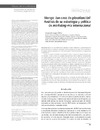Please use this identifier to cite or link to this item:
https://accedacris.ulpgc.es/jspui/handle/10553/42896
| DC Field | Value | Language |
|---|---|---|
| dc.contributor.author | Arteaga Ortiz, Jesús | en_US |
| dc.date.accessioned | 2018-11-21T11:35:15Z | - |
| dc.date.available | 2018-11-21T11:35:15Z | - |
| dc.date.issued | 2013 | en_US |
| dc.identifier.issn | 0121-5051 | en_US |
| dc.identifier.uri | https://accedacris.ulpgc.es/handle/10553/42896 | - |
| dc.description.abstract | MANGO is a multinational dedicated to the design, manufacture and sale of garments and accessories, mainly for women. Currently, it is the second most important export company in the Spanish textile sector and market leader in the women's apparel segment. Since its founding, the company has undergone continuous growth, enabling it to take on new markets. One possible factor in its rapid expansion has been their particular way of entering markets: Franchises. The company's communication policy using celebrities has also been very effective in helping it to reach its target. That has also advanced its product policy by strengthening the brand image. Despite its high degree of internationalization, MANGO acts locally, for example adapting as much as 20% of its collections to each particular market. It also adapts to new times and customer needs. That is why in 2008 it launched its first collection for men. In general, MANGO applies a medium-to-high price policy, in accordance with its medium-tohigh product quality policy. This means that, while its prices are accessible to a large public, they are nonetheless higher than those of its rival, Zara. The chain's profit strategy is based more on revenue through rotation rather than through margin. To a certain extent, the company's international expansion and growth have been made possible by their international marketing strategy (in some of their policies), under the so-called glocalization conceptual framework: "Think globally, act locally". This article analyzes and studies MANGO's international marketing mix policy and strategy from a theoretical and practical point of view. | en_US |
| dc.language | spa | en_US |
| dc.publisher | 0121-5051 | |
| dc.relation.ispartof | Innovar: Revista de Ciencias Administrativas y Sociales | en_US |
| dc.source | Innovar[ISSN 0121-5051],v. 23, p. 95-110 | en_US |
| dc.subject | 5311 Organización y dirección de empresas | en_US |
| dc.subject.other | Mango | en_US |
| dc.subject.other | Globalización | en_US |
| dc.title | MANGO: A case of glocalization? Analysis of their strategy and international marketing mix policy | en_US |
| dc.title.alternative | Mango: ¿un caso de glocalización? Análisis de su estrategia y política de marketing-mix internacional | en_US |
| dc.type | info:eu-repo/semantics/Article | es |
| dc.type | Article | es |
| dc.identifier.scopus | 84880797724 | - |
| dc.contributor.authorscopusid | 15058807300 | |
| dc.description.lastpage | 110 | - |
| dc.description.firstpage | 95 | - |
| dc.relation.volume | 23 | - |
| dc.investigacion | Ciencias Sociales y Jurídicas | en_US |
| dc.type2 | Artículo | en_US |
| dc.date.coverdate | Marzo 2013 | |
| dc.identifier.ulpgc | Sí | es |
| dc.description.sjr | 0,179 | |
| dc.description.sjrq | Q3 | |
| item.fulltext | Con texto completo | - |
| item.grantfulltext | open | - |
| crisitem.author.dept | GIR IUCES: Centro de Innovación para la Empresa, el Turismo, la Internacionalización y la Sostenibilidad | - |
| crisitem.author.dept | IU de Cibernética, Empresa y Sociedad | - |
| crisitem.author.dept | Departamento de Economía y Dirección de Empresas | - |
| crisitem.author.parentorg | IU de Cibernética, Empresa y Sociedad | - |
| crisitem.author.fullName | Arteaga Ortiz, Jesús | - |
| Appears in Collections: | Artículos | |
SCOPUSTM
Citations
1
checked on Jun 8, 2025
Page view(s) 10
673
checked on Jan 15, 2026
Download(s)
284
checked on Jan 15, 2026
Google ScholarTM
Check
Share
Export metadata
Items in accedaCRIS are protected by copyright, with all rights reserved, unless otherwise indicated.
